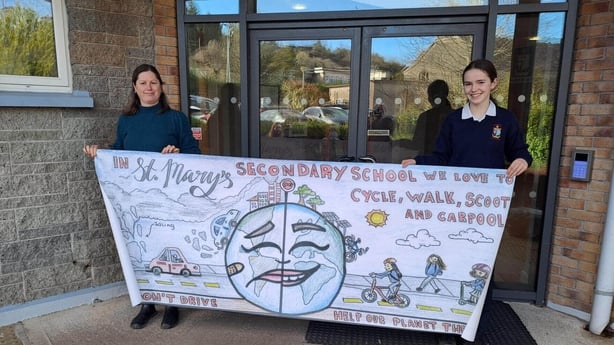Clean Air Week is up and running, and the message is clear that we don't want any idling! But, we are not talking about students, we are talking about cars.
Over the five days schools will be ecouraged to look at sustainable ways to travel and for to work within their community to tackle the issue of car engines idling.
Organised by An Taisce's Green-Schools Travel programme, Clean Air Week calls on schools and communities to work together to improve and protect air quality by choosing active travel modes, implementing idling bans and promoting improved driver behaviour.

Get involved
Green-Schools Travel Officers recently conducted vehicle idling surveys (engines running while stationary) with over 100 schools. The aim was to capture the extent of idling outside schools and provide a snapshot of the issue in Ireland. Idling was recorded for all vehicle types, and ranged from one to 25 minutes.
Schools can do their own surveys and more:
Idling is a habit few people take into consideration, and one which many believe is better for their car than turning off the engine. To bust the myths and provide information, Green-Schools have produced Idling FAQs, which can be found on the Green-Schools website.
This year, Green-Schools Travel have teamed up with GLOBE Ireland and expert speakers from NASA to deliver an engaging webinar for secondary school students on air quality.
There are also two competitions running for primary and secondary school students to help them join in the initiative.
Visit the Green Schools Clean Air Week page for all the resources and information.
Some facts to share with drivers...
While engine idling is damaging and unnecessary, especially to children's health, it is also damaging to our pockets. Ten minutes of idling could take you 8 kilometres. The Sustainable Energy Authority of Ireland (SEAI) Energy Academy highlights that an idling engine will use between 0.5 to 2 litres of fuel in an hour.


